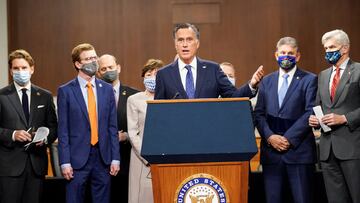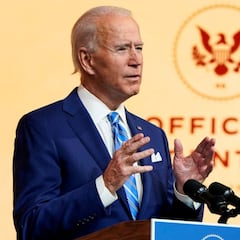Second stimulus check: there be one before 31 December?
Congress is negotiating a bill to avoid a government shutdown this month and covid-19 relief may be included but a new stimulus check looks unlikely.

The clock is ticking for Congress to get much needed stimulus money out the door before year’s end as they are set to go home for the holidays as soon as next week. A bipartisan group has presented a plan for such funding and Mitch McConnell has a White House supported package. Unfortunately neither of them includes a second round of stimulus checks for Americans facing dire circumstances.
Congress has a 11 December deadline to fund the government and avoid a shutdown. This has brought hope that the lame-duck session could see some coronavirus stimulus spending tied in with the bill. All parties look set to take some action but the devil is in the details.
McConnell’s covid-19 relief funding plan
Mitch McConnell has been the “Grim Reaper” on Democrat bills for stimulus spending to counter the effects of the pandemic-induced recession. Prior to the election House Democrats were negotiating with the White House to enact a $2 trillion-plus package but the negotiations floundered. Not that the package stood much of a chance in the Republican-led Senate where even a more modest $1 trillion bill failed the necessary votes.
Now McConnel has presented a new plan to his GOP colleagues, one that he has worked out with the White House. The proposal does not include a new round of stimulus checks. However, it does include one additional month of unemployment benefits to under the Pandemic Unemployment Assistance (PUA) and Pandemic Emergency Unemployment Compensation (PEUC). Then phasing out the programs over two months but without allowing any new applicants to the programs.
McConnell now circulating a plan with:
— Jeff Stein (@JStein_WaPo) December 1, 2020
- no state & local aid;
- only 1 additional month in PUA & PEUC for jobless Americans;
- no additional stimulus checks;
- Sen. Cornyny's proposed liability shield;
- no money for transit agencies
...among other non-starters for Dems https://t.co/DD5Rd0Dd1t
The plan's price tag looks to be similar to the $500 billion McConnell has been pushing for months but that Democrats have said is insufficient. For their part Senate Minority Leader Chuck Schumer and House Speaker Nancy Pelosi offered new proposals for a compromise to McConnell but didn’t give any details.
Treasury Secretary Steven Mnuchin and Pelosi were expected to discuss the must-pass government funding bill and coronavirus aid on Tuesday.
The bipartisan covid-19 relief funding plan
A new plan presented by a bipartisan group of both House and Senate members was unveiled Tuesday at a press conference. The bill is a middle road between McConnell’s proposal and the Democrat House bill passed in October. The plan calls for $908 billion on a range of COVID-19 relief measures. When presenting the plan Mitt Romney said “I happen to be a deficit hawk. I don’t like borrowing money. I don’t like spending money we don’t have. But the time to borrow money is when there is a crisis. And this is a crisis.”
Part of the bill provides for four months of additional unemployment benefits but in a compromise the top-up would be just $300 as opposed to the $600 Democrat were seeking. As well the bill calls for state and local funding to the tune of $160 billion which will pay for front line workers. However, like the McConnell proposal there is no call for another $1200 stimulus check.
Bipartisan U.S. lawmakers seek fast approval of $908 billion COVID-19 relief https://t.co/RDq7vfiMsE pic.twitter.com/YkqgEcyeBJ
— Reuters (@Reuters) December 1, 2020
What does Biden say?
President-elect Joe Biden says a bipartisan coronavirus relief package needs to be pushed through immediately, and that it should be similar in breadth to the HEROES Act, a $3.4tn aid proposal passed by Democrats in the House in May, but that never got a vote in the Senate.
When presenting his new economic team on Tuesday Biden repeated his mantra “Right now, the full Congress should come together and pass a robust package for relief to address these urgent needs.” Adding, “But any package passed in a lame-duck session is likely to be, at best, just a start.”
As for the newly released bipartisan bill he said “I just heard about it. I’ll take a look at it when I get back.” With regards to whether he has spoken with McConnell he said “Not yet.”
How badly does the US economy need stimulus?
A new report from the Economic Policy Institute recommends that “Congress provide debt-financed fiscal support of $2 trillion between now and the middle of 2022, and then continue support on the order of $400 billion annually between then and the end of 2024, with a slow phaseout of this aid thereafter.”
Related stories
With millions of Americans unemployed directly owing to the coronavirus pandemic and the last trickles of enhanced unemployment benefits due to dry up come 26 December, Josh Bivens explains that this plan needs to “first stop the economic bleeding and then repair the aspects that have been “rotted away” in order to rebuild a resilient economy.”
Add to this the ticking time bomb of existing trickling benefits implemented by the CARES Act in March that are due to finally expire by 31 December 2020 and things start looking pretty desperate for a lot of Americans.


